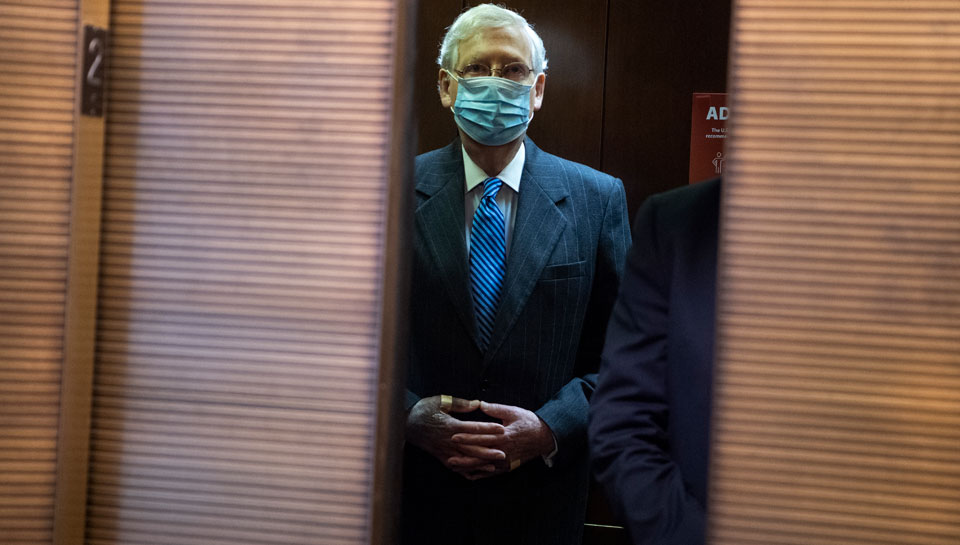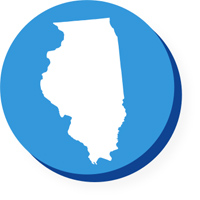
Senate Majority Leader Mitch McConnell brought his two stand-alone COVID relief bills to a vote in the Senate this week two stand-alone COVID-19 relief packages. On Tuesday, he put up an extension of the Paycheck Protection Program bill to help small businesses, and on Wednesday again staged a vote on the same “skinny” $500 billion stimulus package Democrats rejected last month.
Both measures failed to pass, as everyone knew they would. McConnell was well aware he didn’t have enough support to move the bills; his goal was simply to give Republican Senators some flimsy evidence to claim they supported rescue measures that Democrats didn’t vote for.
Democrats have repeatedly pressed for a much more comprehensive plan providing more funding for COVID-19 testing and, in particular, funding for state and local municipalities that have been hit doubly hard by the pandemic, suffering loss of significant revenues because of the economic slow-down while also incurring substantial expenses to address the effects of the pandemic. Months ago, a $2.2 trillion-dollar relief bill, the HEROES Act, passed in the House, only to languish on McConnell’s desk, never coming to a vote in the Senate.
To some, it might have initially seemed like a good idea for Senate Democrats to pass relief bills piecemeal in order to get aid to as many suffering Americans as possible as soon as humanly possible. Indeed, with the recent drying up of relief benefits passed earlier in the year, 8 million more Americans fell into poverty. The need is dire.
And yet, what McConnell and the GOP wanted to do with these stand-alone bills is precisely to play favorites and have the right to pick and choose exactly which people or sectors will be favored with relief funding and which will, effectively, be punished by being excluded from their bills.
If the Democrats had approved these so-called relief packages in isolation, the Republicans could simply walk away from upcoming bills representing other discrete pieces of a comprehensive and overall package designed to address the needs of all suffering Americans.
Funding for state and local governments has been the biggest target for Trump, McConnell, and the GOP. And the attack on state and local governments is really an attack on largely unionized workers and, by extension, the people of the state they serve.
Indeed, as Claire Hansen reported for U.S. News and World Report last week, chronicling discussions between House Speaker Nancy Pelosi and Treasury Secretary Steve Mnuchin:
Mnuchin said Wednesday that there was not only disagreement over the top-line cost of the package but also over specific policy provisions within the bill, including the funding for states and localities. Trump has repeatedly signaled his resistance to “bailing out” states and cities run by Democratic leaders.
The dynamic here is clear. Trump, McConnell, and the GOP are committed to representing and serving only part of America, what some have called Trump’s “United Base of America.”
The attack on states, we need to recognize, has built into it another target—unionized public workers who often have state-funded pensions.
And this attack on public-sector workers is equally an attack on all of us living in states, as it means states may not be able to pay for teachers, firefighters, police officers, and a whole range of vital services upon which all of us depend for roads, parks, libraries, public schools, affordable state universities, clean water supplies, police and fire protection, garbage pick-up, snow removal, public health services, and more.
People’s World Election Town Hall – Oct. 25th – Register here.
We have to wonder: Why wouldn’t the federal government provide similar assistance to states losing out on key revenues because of the pandemic so teachers can keep educating children, police can keep the peace, workers can maintain infrastructure, hospitals can receive aid, firefighters can address emergencies, and so forth?
Why are funding states and helping to keep state workers employed and vital services available to people such an issue?
While McConnell and the GOP say they want to protect the paychecks of employees in the private sector, public sector employees are, in their plans, hung out to dry, as are all of us depending on the vital services those employees provide.
In earlier iterations of relief funding proposals, McConnell has simply said he refuses to bail out states who have created their own fiscal problems through mismanagement and underfunding pension systems. He thinks states should declare bankruptcy, although it is actually illegal for states to declare bankruptcy and default on obligations, including pension obligations.
As I’ve explained elsewhere, McConnell is actually exploiting this moment—and Americans’ suffering—to pursue his long-desired political plot of getting states, particularly blue states with robust public sectors and a substantial unionized workforce, under the budget jurisdiction of the Federal judicial system. Bankruptcy proceedings are overseen by federal courts, so if McConnell can pass legislation allowing states to declare bankruptcy, he can get these blue state budgets—and also their governing policies—under federal control.
We can see that these actions are simply nefarious political maneuverings when we consider the recent past.
First, remember back in the Great Recession when banks behaved badly, irresponsibly issuing toxic loans and mortgage-backed securities and derivatives, leading to the near-total collapse of the U.S. economy? They were not punished for their behavior, for “problems they created for themselves.” They were bailed out supposedly to save the economy, because they were “too big to fail,” even though many Americans still suffered foreclosure, eviction, and job loss.
If states are having trouble funding pensions, well, at least that’s a problem caused by trying to help people live a dignified retirement. Whereas banks created their problems in the Great Recession because they were greedy and trying to rip people off.
Moreover, aren’t states too big to fail, also? States laying off workers and being unable to provide basic services and maintain infrastructure, will be a huge hit to the economy.
Trump, McConnell, and the GOP, though, simply aren’t thinking about the economy and people’s dire needs in these ways.
They are too busy politicizing this situation and seeking vengeance of their political enemies—a mode of governing that inevitably harms the American people, leaving us hung out to dry.
As with all op-eds published by People’s World, this article reflects the opinions of its author.













Comments